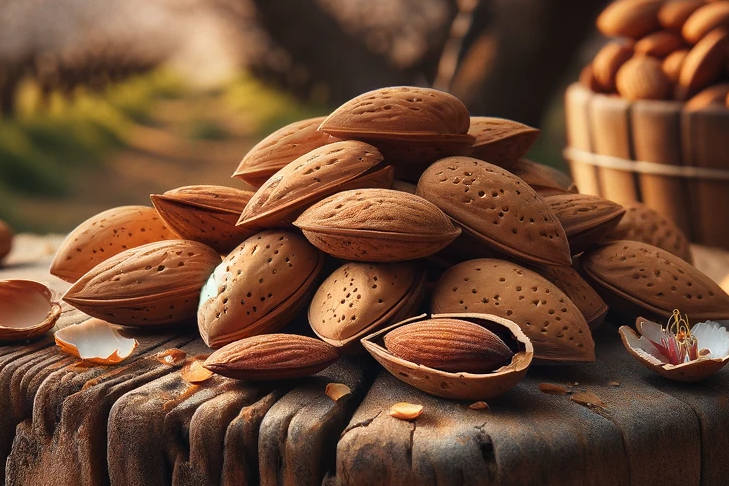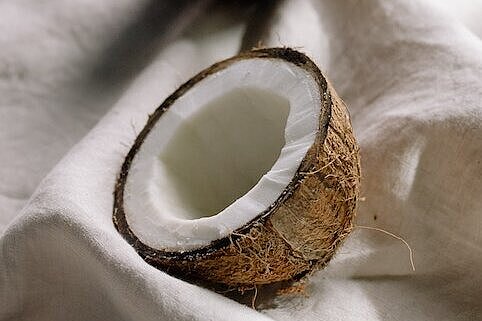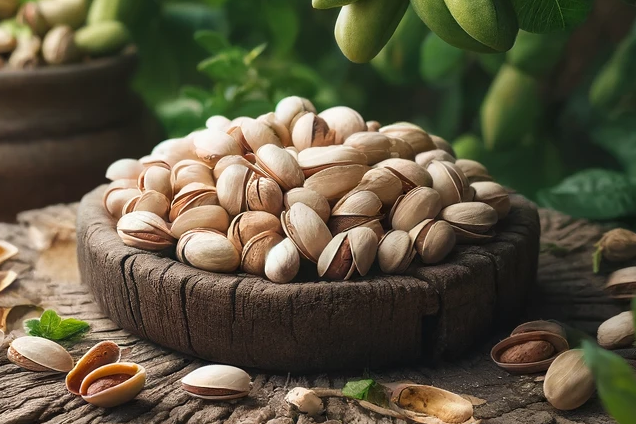Hazelnut shells

In the constant search for healthy and sustainable ingredients for our dogs' diets, hazelnut shells are an interesting by-product that is attracting increasing attention. But what is really behind this material, which is usually seen as a waste product of hazelnut harvesting? Can hazelnut shells actually contribute to the health of our four-legged friends, or do the potential risks outweigh the benefits? In this article, we explore the nature of hazelnut shells, highlight their potential benefits and drawbacks and offer a final assessment of their suitability as an ingredient in dog nutrition.
What are hazelnut shells?
Hazelnut shells are the hard, outer protective material that surrounds the hazelnut. After the nuts are harvested and processed, the shells remain as a by-product. While hazelnuts themselves are known for their rich nutrients, including healthy fats, proteins and vitamins, little attention is often paid to the shells. However, they too may have valuable properties that, in the right form and quantity, could be beneficial for dogs.
Benefits of hazelnut shells for dogs
Natural source of fiber
Hazelnut shells are rich in fiber, which can promote healthy digestion. Incorporating ground hazelnut shells into a dog's diet could support gut health and help regulate bowel function.
Dental health
Chewing on hard materials such as hazelnut shells can help clean teeth and reduce plaque build-up. However, this should be done under supervision to minimize the risk of tooth damage.
Sustainable ingredient
The use of hazelnut shells as a feed additive is in line with the drive for a more sustainable pet diet. Using this by-product reduces waste and promotes more environmentally friendly production.
Possible disadvantages and considerations
Risk of intestinal blockages
Large pieces of hazelnut shells can pose a risk of intestinal blockages, especially in smaller dogs. It is important that the shells are properly crushed to minimize this risk.
Lack of nutritional value
Although hazelnut shells can provide certain health benefits, they themselves do not have a high nutritional value. Their use should therefore be considered as a supplement and not as a substitute for nutrient-rich ingredients.
Potential toxicity
It is necessary to check the origin of hazelnut shells to ensure that they are free from contaminants. Shells that have been treated with pesticides or other chemicals can be harmful to dogs.
Hazelnut shells offer interesting potential as a sustainable supplement in the diet of dogs. Their benefits, such as promoting healthy digestion and potentially supporting dental health, are promising. However, the potential risks, particularly the risk of intestinal blockages and the need for careful processing, must be taken seriously. As with any new feed supplement, it is important to introduce it gradually and under supervision and to seek professional advice if in doubt. The use of hazelnut shells could be a small step towards a more environmentally conscious and healthier future for our dogs, but requires responsible handling and further research to fully understand its safety and efficacy.
If you notice any signs of hypersensitivity or poisoning in your dog, you should see your vet immediately. We are not a substitute for a vet, but we try to be as accurate as possible. Every dog reacts differently and we recommend you get a second opinion or consult your vet if in doubt.
Stay healthy and take good care of your four-legged friend!😊
Similar to Hazelnut shells
Walnut shells are the hard, outer shells that surround the edible kernel of the walnut. They consist of two halves that fall apart when the nut is cracked open. Walnut shells are extremely hard and...
Almond shells are the outer covering that surrounds the almond. While the almond itself is widely used as a food, the shells are often seen as a by-product of the almond harvest. However, recent...
Coconut husks are the dried and ground flesh of the coconut. It contains many valuable nutrients such as fiber, fats, protein, vitamins and minerals. Coconut husk has a pleasant smell and taste and...
Pistachios are small, delicious nuts that are often praised as healthy snacks. After the nut is eaten, the hard, woody shell remains, which is commonly regarded as waste. These shells have a...



